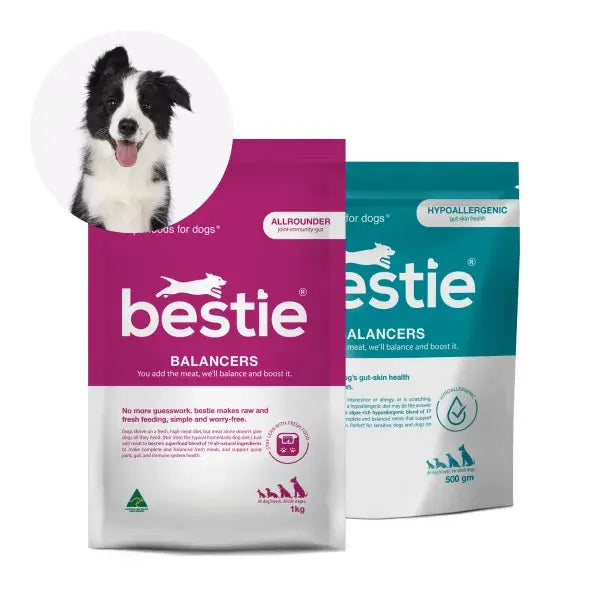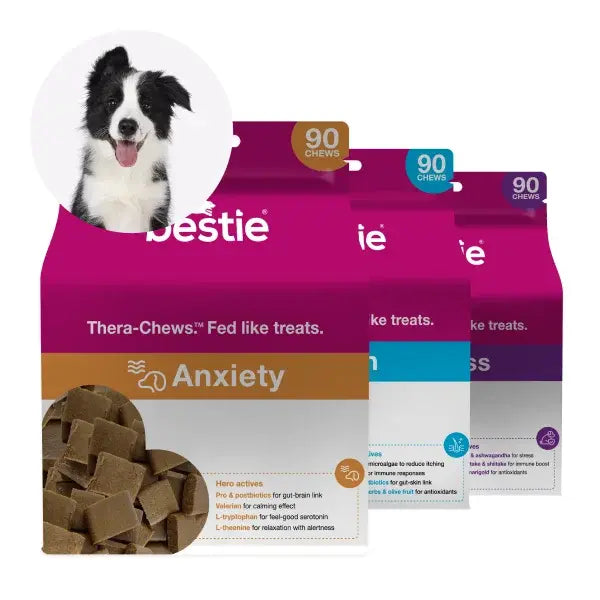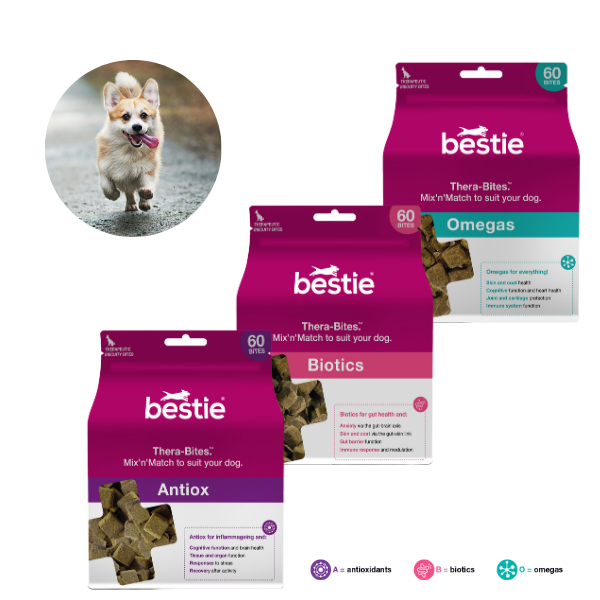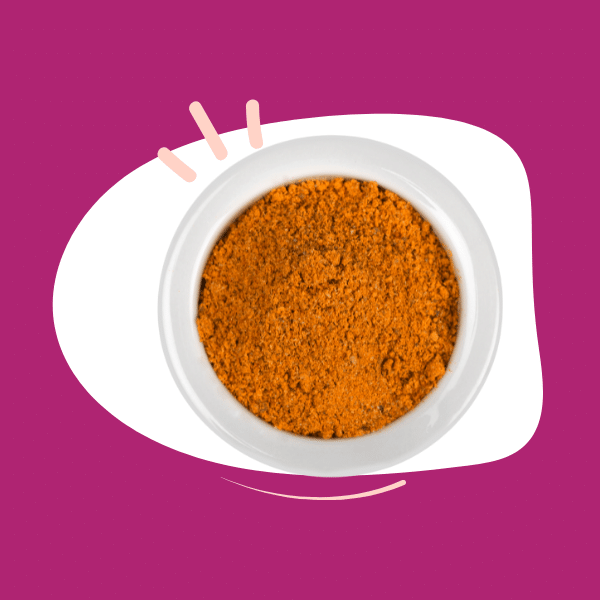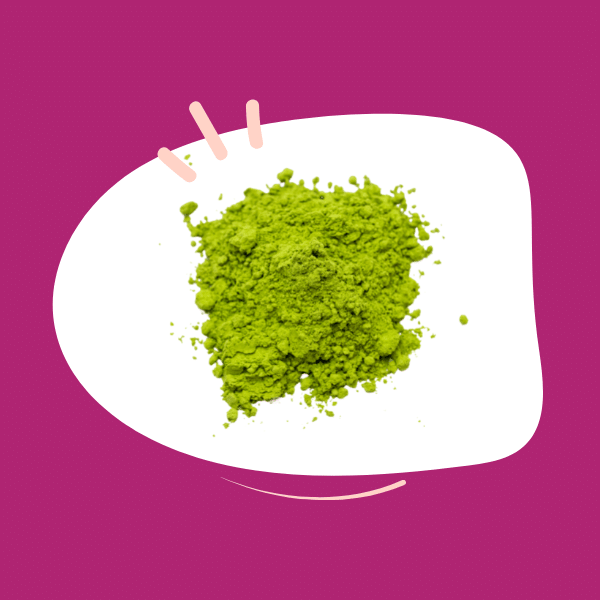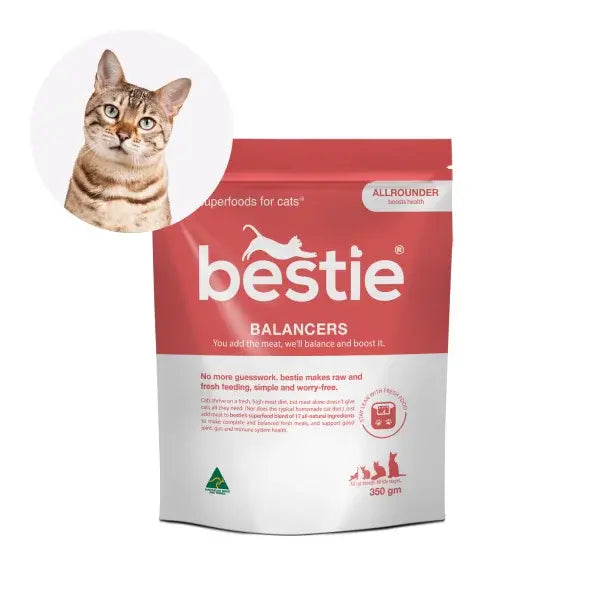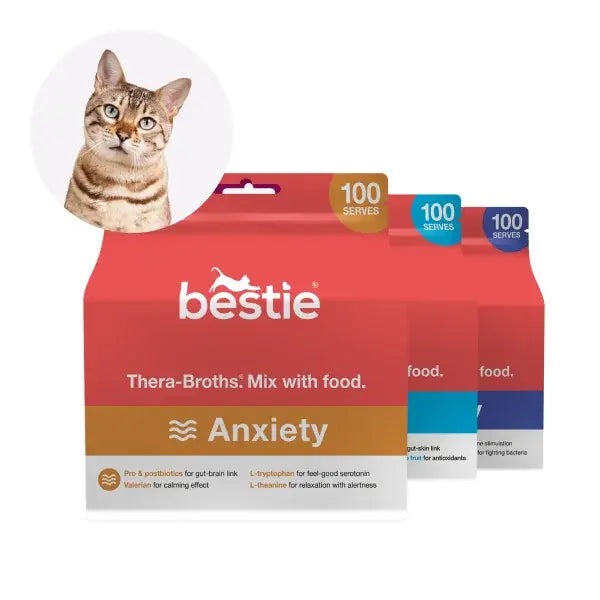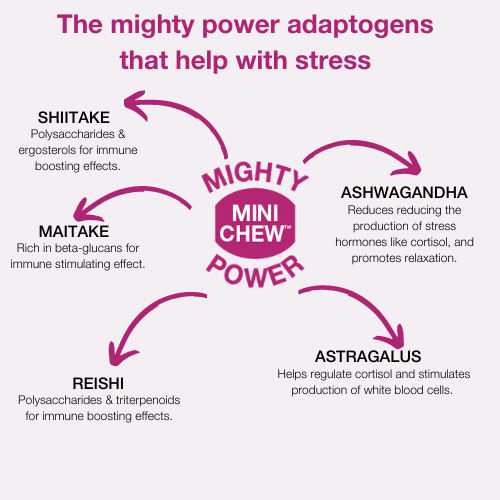Just like us, dogs and cats are constantly exposed to various stressors. And again, like us, physical and psychological stress can have a negative impact on your pet’s health and well-being, which can eventually increase your pet’s risk of health issues and the development of behavioural problems.
Adaptogens are a group of plants and mushrooms that can help your pet adapt to various stressors via what’s called a ‘state of non-specific resistance’. These nature-based remedies support the overall health and well-being of pets.
Each adaptogen possesses unique properties but a distinct feature they all share is the ability to return a disordered system of the body to a state of balance or equilibrium.
Adaptogens – and in particular - ashwagandha, astragalus, reishi, shiitake and maitake mushrooms - make the Bestie Stress health chew a powerful health boost for pets.
What is stress?
Stress is the body’s response to specific stimuli called stressors. These stressors can be internal or external, and exposure to them may be short-term (acute) or long-term (chronic).
To cope with a stressful event or situation, the body responds by releasing the hormones cortisol and adrenaline (epinephrine). High levels of these hormones in the body can lead to an increase in blood pressure, heart rate, and rate of metabolism.
These responses are all intended to intensify the ability of the body to overcome stressful challenges. However, continued exposure to stressors may lead to various issues including gastrointestinal disturbances, anxiety, depression, muscle aches, and worsening of pre-existing health conditions.
History of adaptogens
Dr. Nikolai Lazarev, a Soviet scientist, first used the word ‘adaptogen’ when researching substances that produced a “state of non-specific resistance” (SNIR). These substances were used to enhance the productivity and performance of soldiers, athletes, and workers without using stimulants with their known harmful effects.
Common adaptogens
The general pharmacological properties of adaptogens as defined by Dr. I.I. Brekhman and Dardymov1 include:
- A substance that is relatively non-toxic to the recipient.
- A substance with “non-specific” activity and acts by increasing an organism’s resistance to a wide range of adverse physical, biological, and chemical factors.
- Adaptogens can help regulate or normalise the recipient organism’s organ and system function.
Table 1. Types of Adaptogens and their Mode of Action
|
Type of Adaptogen |
Action |
|
Reishi mushrooms (Ganoderma lucidum)
|
l Known in Traditional Chinese Medicine (TCM) as the “mushroom of immortality” l Support normal liver, heart, and kidney health l Plays a role in detoxification reactions in the body l Positively affect insulin and blood glucose levels |
|
Maitake mushrooms (Grifola frondosa) |
l Support heart health l Promote immune system function and integrity |
|
Shiitake mushrooms (Lentinula edodes) |
l Immune system support l Promotes normal liver function and healthy skin and haircoat l Contains phytochemicals that support cellular functions in humans and pets |
|
Astragalus |
l Powerful immune system booster
|
|
American ginseng (Panax quinquefolium) |
l Immune system support l Anti-inflammatory l Combats stress l Boosts nervous system function |
|
Ashwagandha(Withania somnifera) -- also known as Indian ginseng |
l Has a calming effect (anti-anxiety) l Antibacterial activity l Regulates metabolism l Antioxidant properties l Anti-inflammatory |
|
Asian ginseng (Panax ginseng) |
l Helps relieve both mental and physical fatigue l Boosts energy and performance during stressful activities |
|
Eleuthero(Eleutherococcus senticosus) |
l Modulates immune system function l Helps relieve stress and fatigue |
|
Rhodiola(Rhodiola rosea) |
l Alleviates symptoms of fatigue, anxiety, and depression l Helps improve performance during stressful situations |
What do adaptogens do?
Adaptogens are given to pets to restore a state of balance or homoeostasis. They act to increase or decrease chemical reactions within the body. Adaptogens reduce the damaging effects of various stressors by reducing the reactivity of the animal’s defence system.2
By increasing the ability to cope with stress, adaptogens have a curative effect on stress-induced disorders.
When your dog is exposed to stressors, the body responds by increasing cortisol levels. Consuming a specific adaptogen can help reduce cortisol levels.
On the other hand, if cortisol levels are low, certain adaptogens act to bring back cortisol to normal levels in the body.
Are adaptogens similar to central nervous system (CNS) stimulants?
Adaptogens differ in significant ways from classical CNS stimulants. Experiments on frogs show that adaptogens do not have direct anti-narcotic effects on the CNS unlike other stimulants such as phenamine, caffeine, etc.
The mechanisms of action of adaptogens are related to the regulation of the stress system – neuroendocrine – immune complex, and are associated with the biochemical adaptation of cells and organisms to stress.3
Table 2. The Difference Between CNS Stimulants And Adaptogens
|
|
CNS Stimulants |
Adaptogens |
|
Recovery process after exhaustive physical load |
Low |
High |
|
Energy depletion |
Yes |
No |
|
Performance in stress |
Decreased |
Increased |
|
|
Decreased |
Increased |
|
Quality of arousal |
Bad |
Good |
|
Insomnia |
Yes |
No |
|
Side effects |
Yes |
No |
|
DNA/RNA and protein synthesis |
Decreased |
Increased |
Source: Effect of Adaptogens on the Central Nervous System (CNS)
Adaptogens for pets
Adaptogens support the way your pet’s body handles stress. The important benefits of adaptogens for pets include the following:
- Alleviate anxiety
- Boost the immune system
- Increase energy
- Reduce fatigue
- Strengthen muscles
- Improve coordination
- Regulate emotional reactions to stress
- Cope with trauma
Senior pets
Adaptogens are among some of the most beneficial supplements for ageing dogs. As their bodies deteriorate from years of wear and tear, adaptogens strengthen their body’s response to stress.
Supplementation with adaptogens can also help boost their cognitive function and immune system. They’re also good for senior dogs with sleeping problems.
Improve performance of working dogs and dog athletes
For working dogs and dog athletes, adaptogens can improve alertness and endurance. These herbs also promote work capacity while under stressful conditions, as well as recovery after engaging in strenuous activity. Specific adaptogens boost alertness and promote better vision even in poor light.
With adaptogens, working dogs and dog athletes can have better performance with fewer injuries and illnesses. And in case they get injured or ill, adaptogens help them recover faster.
Take note, however, that adaptogens are not a shortcut to better performance, and unlike stimulants and anabolic steroids, they will not enhance a dog’s performance beyond his or her natural ability. All the adaptogens can do with respect to performance is help the dog do his or her natural best under the conditions of stress inherent to the job and its associated circumstances.4
Dogs exposed to urban stressors
A study of dogs under stress that were given an adaptogen formula led to better appetites and digestion, a significant reduction in problem behaviours, and an improvement in the skin and hair coat of dogs. The hepatoprotective effects of adaptogens were also evident.5
Dogs in chemotherapy
Adaptogen supplementation of dogs undergoing chemotherapy reduced common side effects, particularly the decrease in white blood cell count. The dogs also have fewer symptoms associated with chemotherapy and allowed them to maintain a better quality of life.6
Growing puppies
Adaptogen supplementation can help accelerate weight gain and maintain homoeostasis during sensitive periods of growth.7
Accelerates healing and repair
Adaptogens stimulate proliferative and reparative processes which promote accelerated healing of purulent-necrotic disorders and post-operation wounds.8
Adaptogens are generally safe for pets. If it’s your first time adding the supplement to your pet’s diet, you should be alert for any adverse reactions. If your pet has been diagnosed with specific health conditions, it’s highly recommended that you consult your veterinarian before starting your pet on any supplement.
References:
- Brekhman I I and I V Dardymov. New Substances of Plant Origin which Increase Nonspecific Resistance. Annual Review of Pharmacology Vol. 9:419-430 (Volume publication date April 1969). https://doi.org/10.1146/annurev.pa.09.040169.002223
- Panossian A, Oganessian A, Ambartsumian M, Gabrielian E, Wagner H, Wikman G. Effects of heavy physical exercise and adaptogens on nitric oxide content in human saliva. Phytomedicine 1999; 6: 17-26.
- Panossian, A. and G. Wikman. Effect of adaptogens on the central nervous system. Arquivos Brasileiros de Fitomedicina Científica • Vol. 3 • número 1 • abril 2005
- King, Christine. Adaptogens and the Working Dog: on performance, injury, and career longevity. 2010.
- Lyubov Lukoyanova,Oksana Kriyachko,Viktoriya Gaponova,Kseniya Anisimova,Aleksei Shafiev. Study of Adaptogenic Properties of the Drug Klim Pet Under Stress of Dogs in a Megalopolis. The Faseb Journal. First published: 14 May 2021 https://doi.org/10.1096/fasebj.2021.35.S1.02469
- Gianotti, Britt M. et al. Preclinical Evaluation of Concurrent Medicinal Mushroom-Based Immune-Enhancement Supplementation in Dogs Undergoing Chemotherapy for Various Cancers. International Journal of Medicinal Mushrooms. Volume 11, Issue 2, 2009, pp. 167-184 DOI: 10.1615/IntJMedMushr.v11.i2.60
- Sadykova1 Y R , E V Rodimova1, E A Kornilova1 and L A Pastukhova1. 2020. Homeostasis-preserving paths in dogs of service breeds at the critical periods of postnatal ontogenesis. OP Conference Series: Earth and Environmental Science, Volume 548, Agribusiness, Economics and Organization of Agritech Engineering. 022045
- Voronkov, M. G. and M. M. Rasulov. Trecrezan: Progenitor of a new class of adaptogens and immunomodulators. Pharm Chem J 41, 1–6 (2007). https://doi.org/10.1007/s11094-007-0001-x


